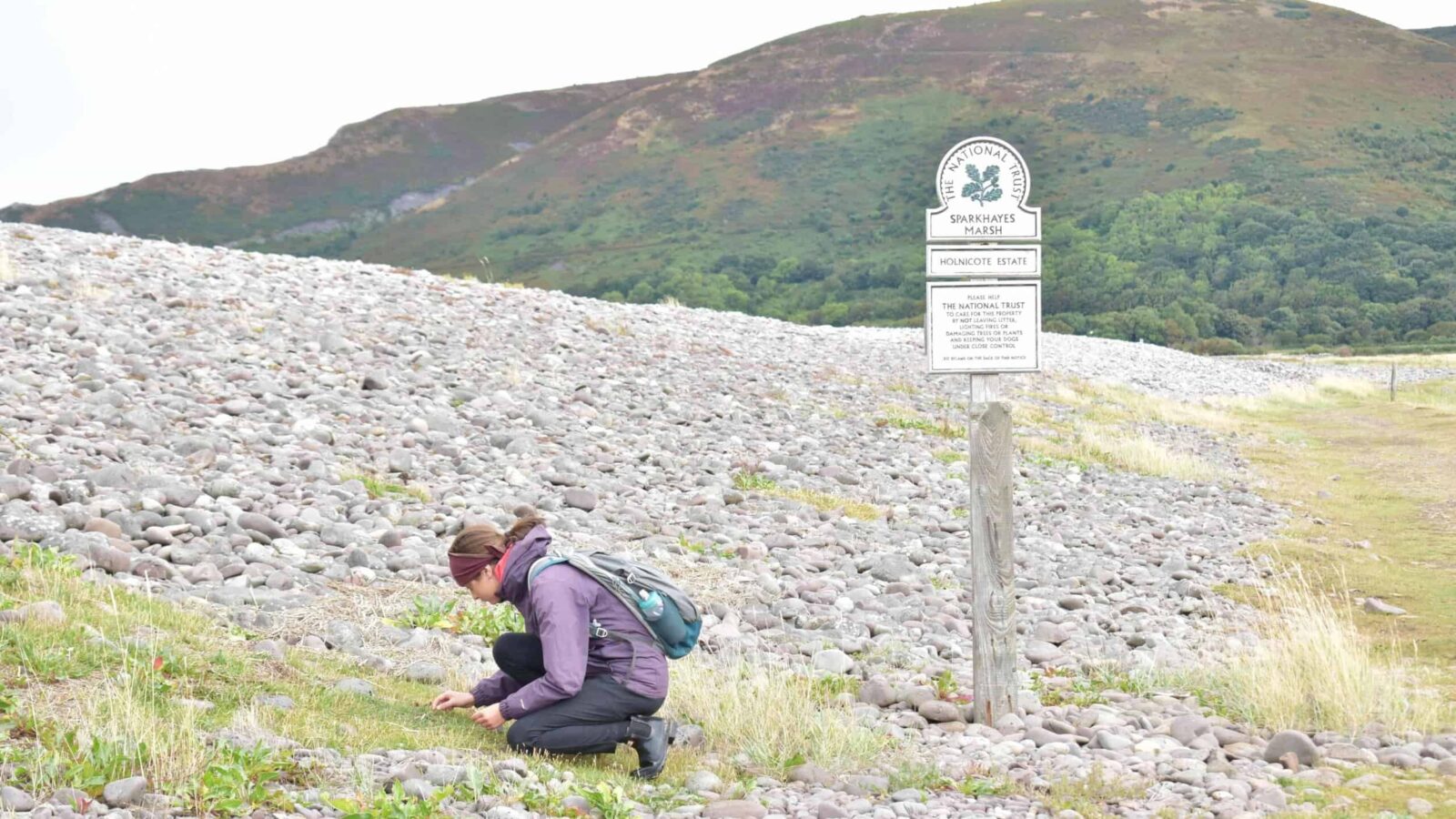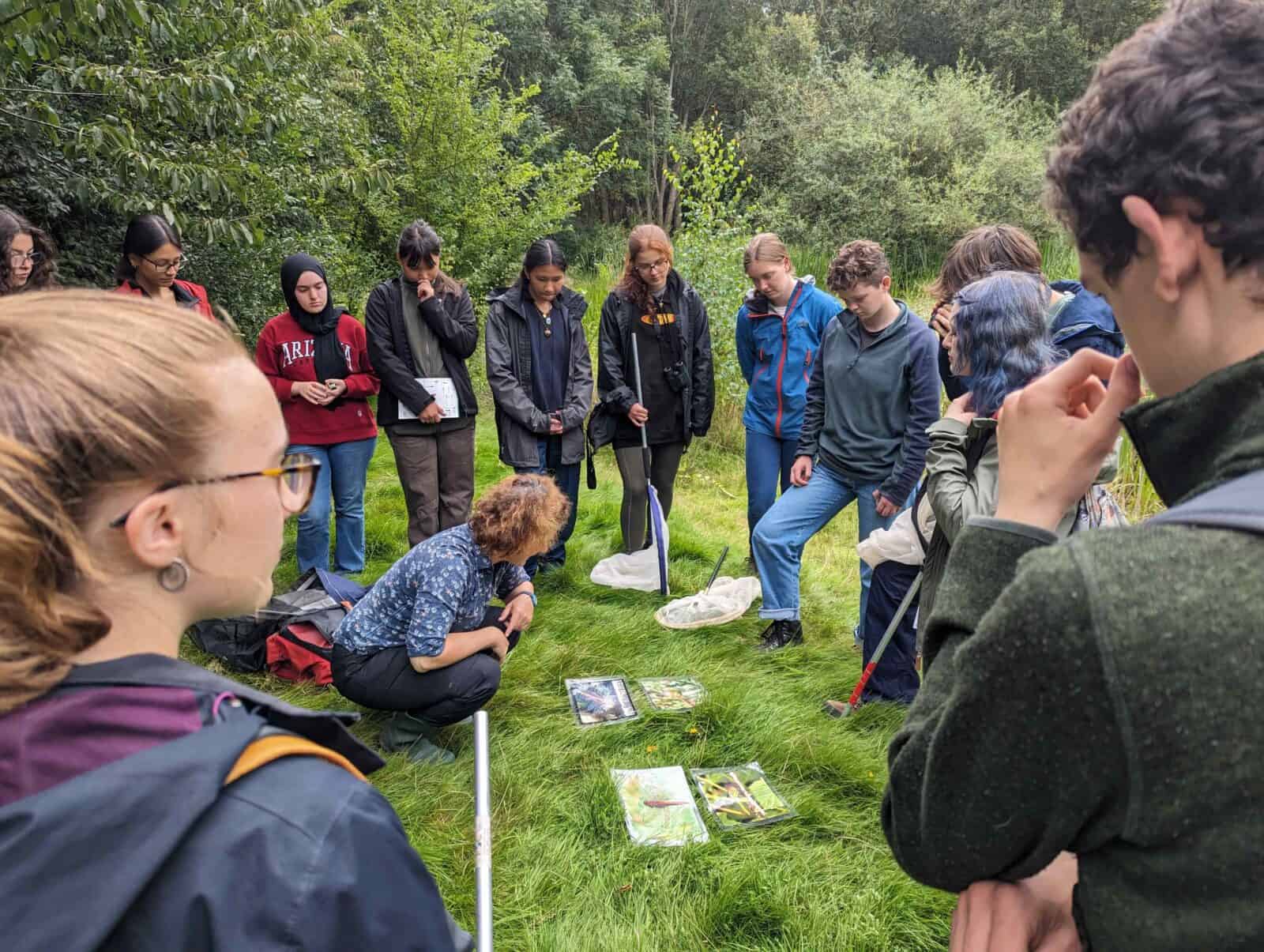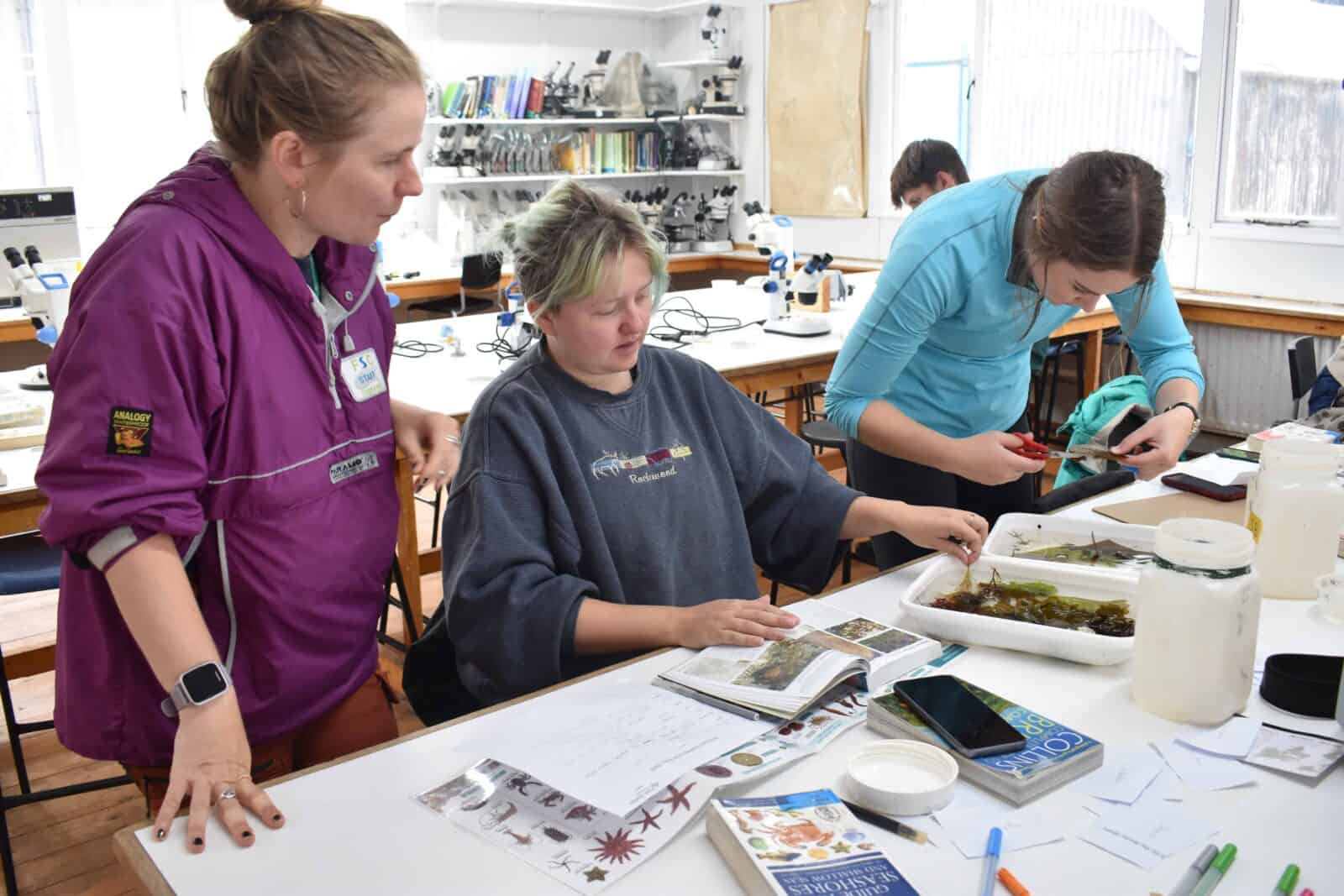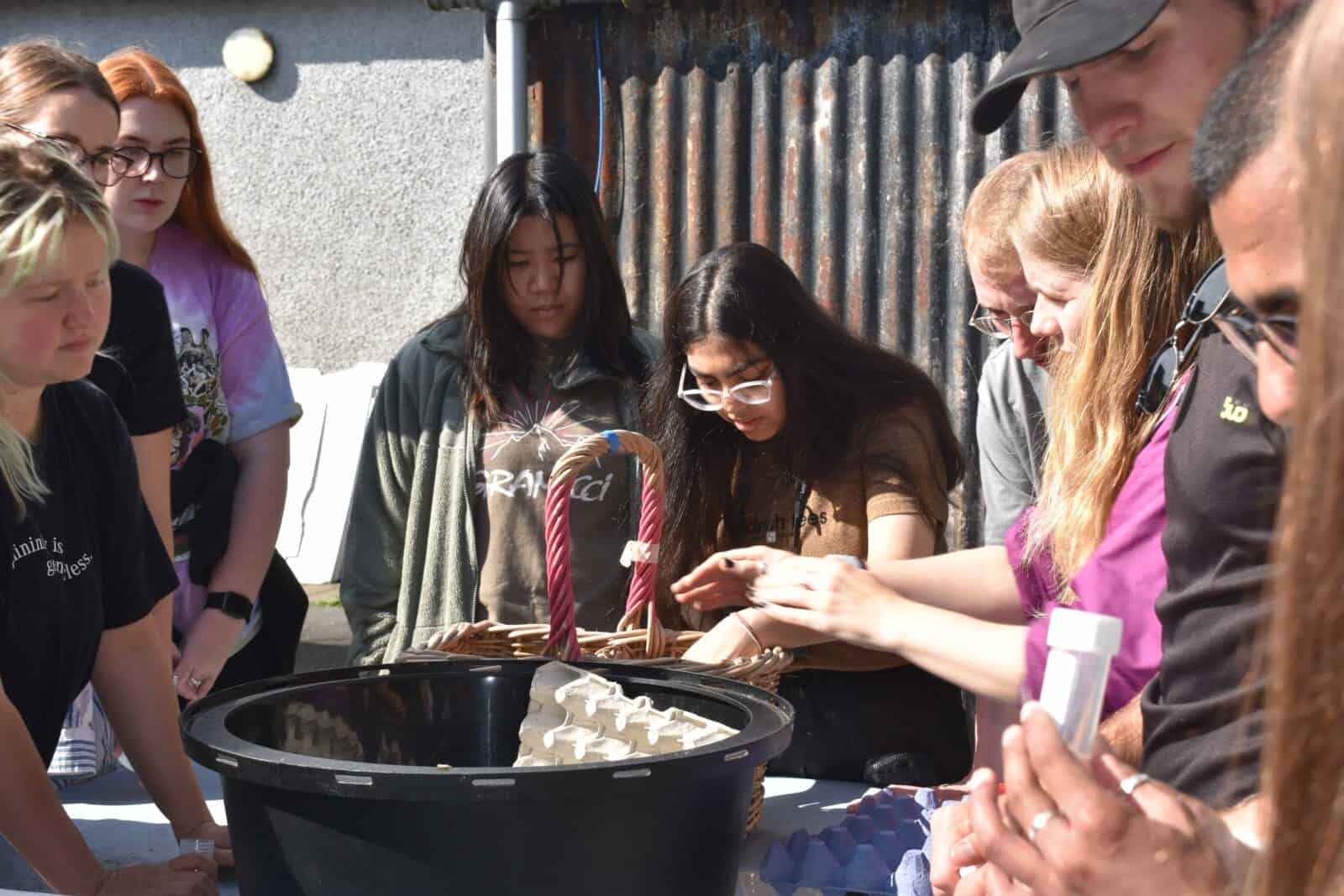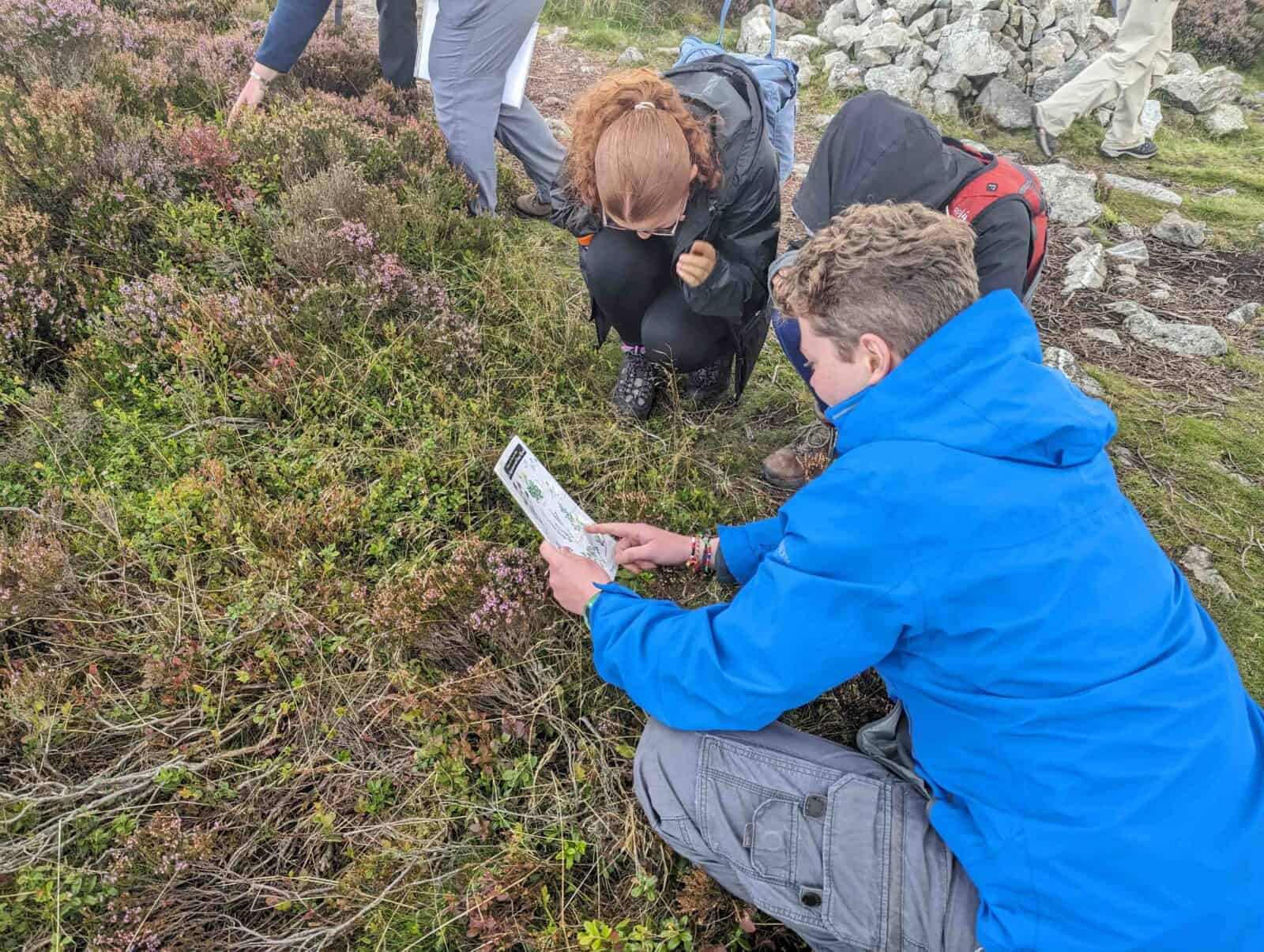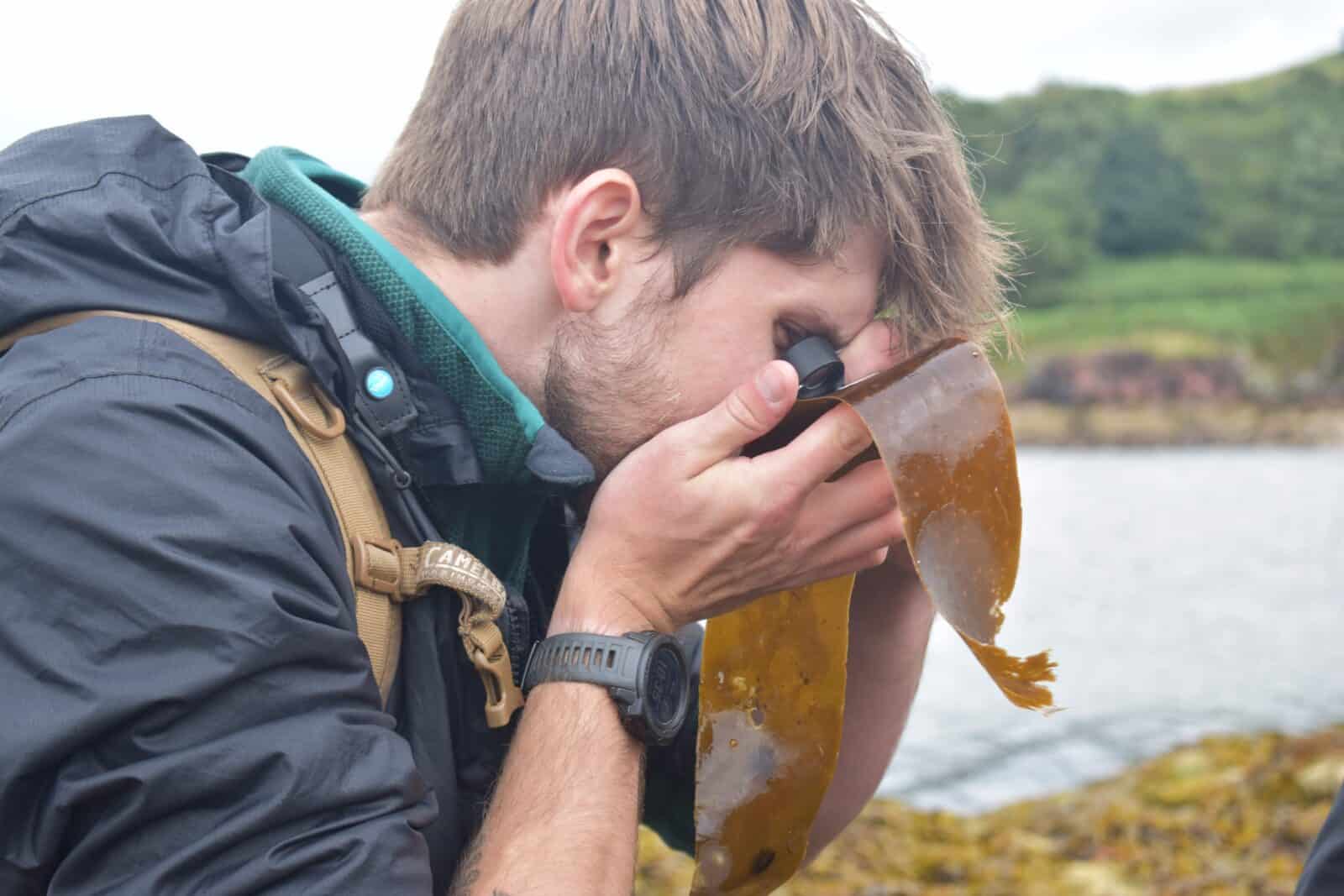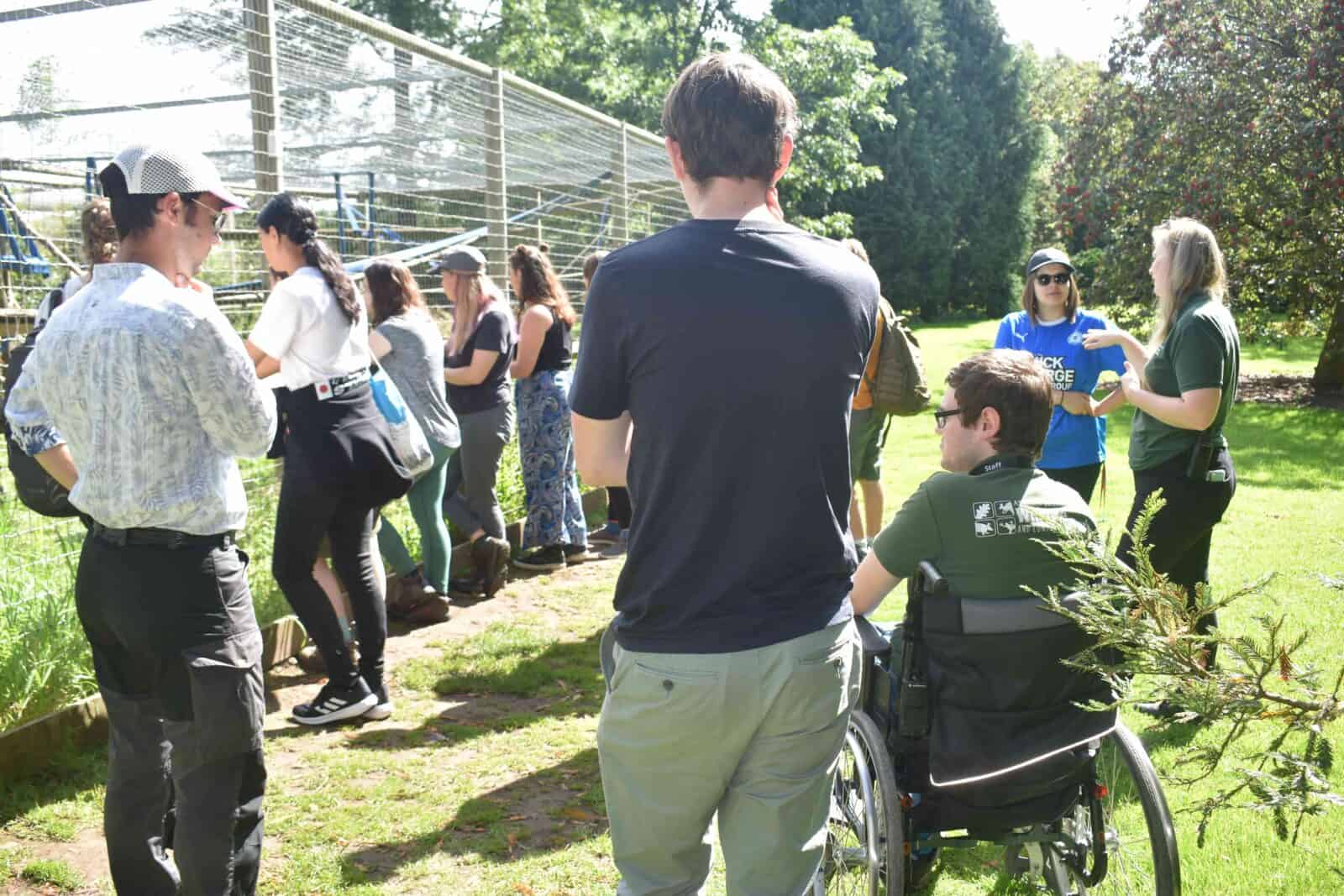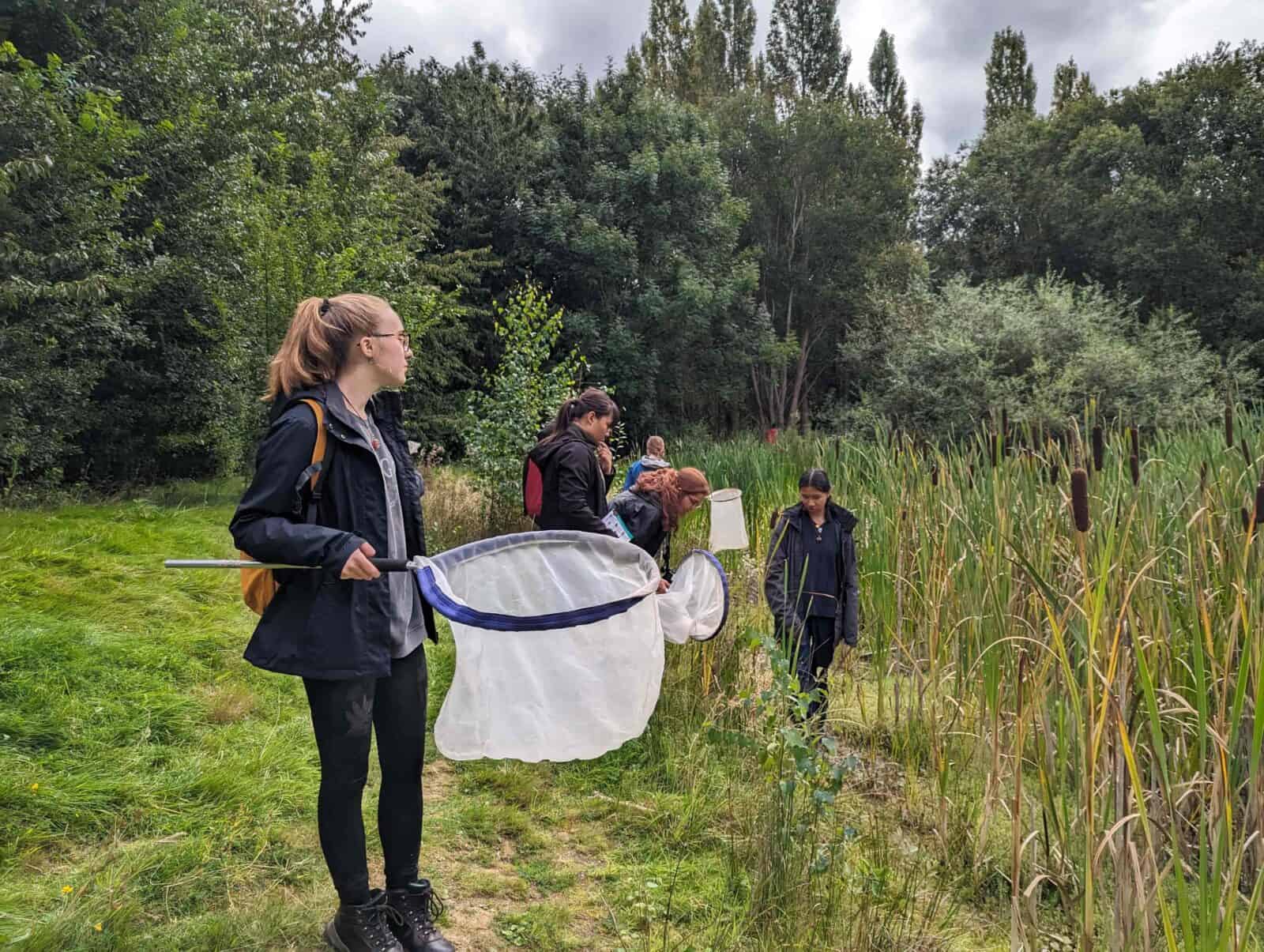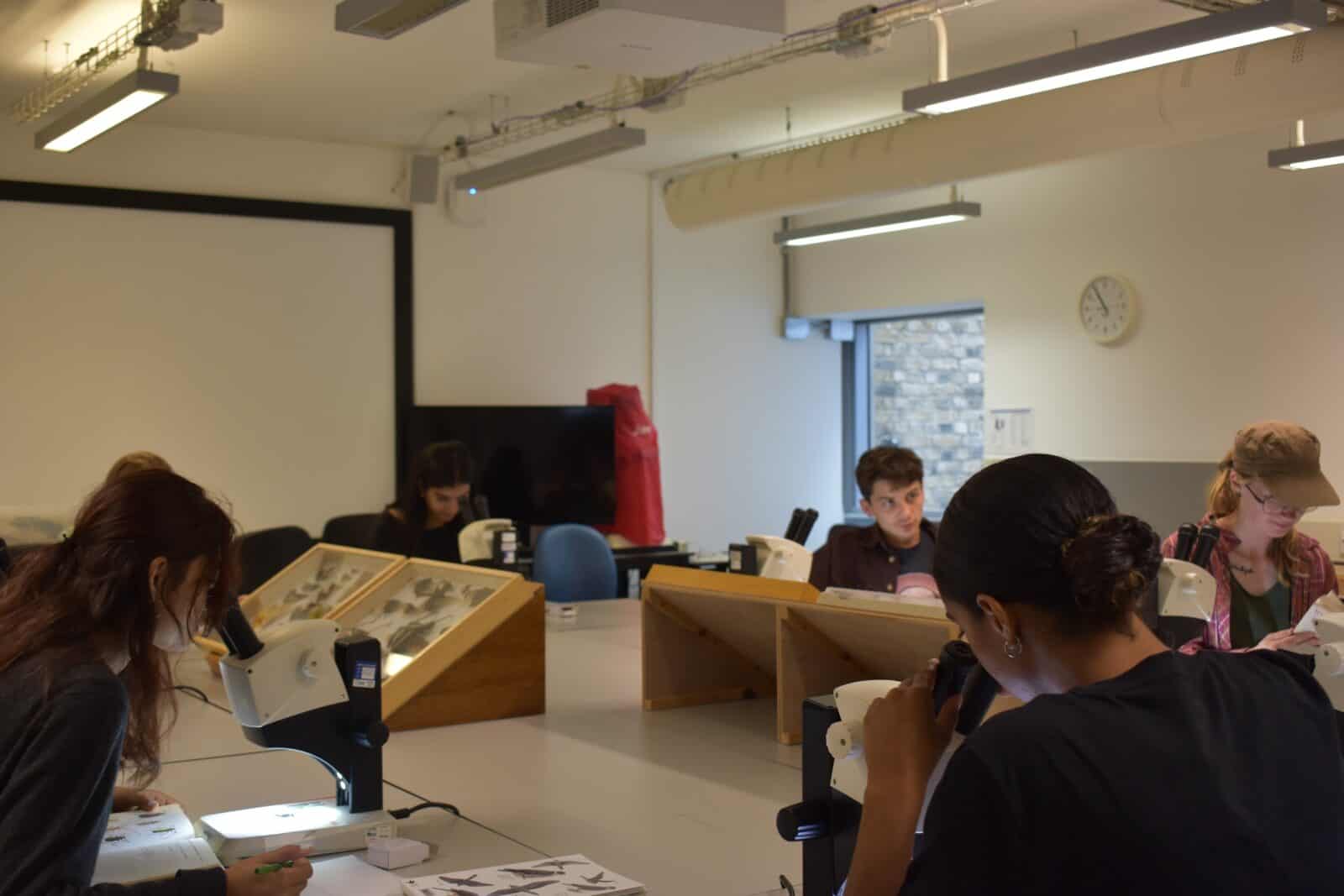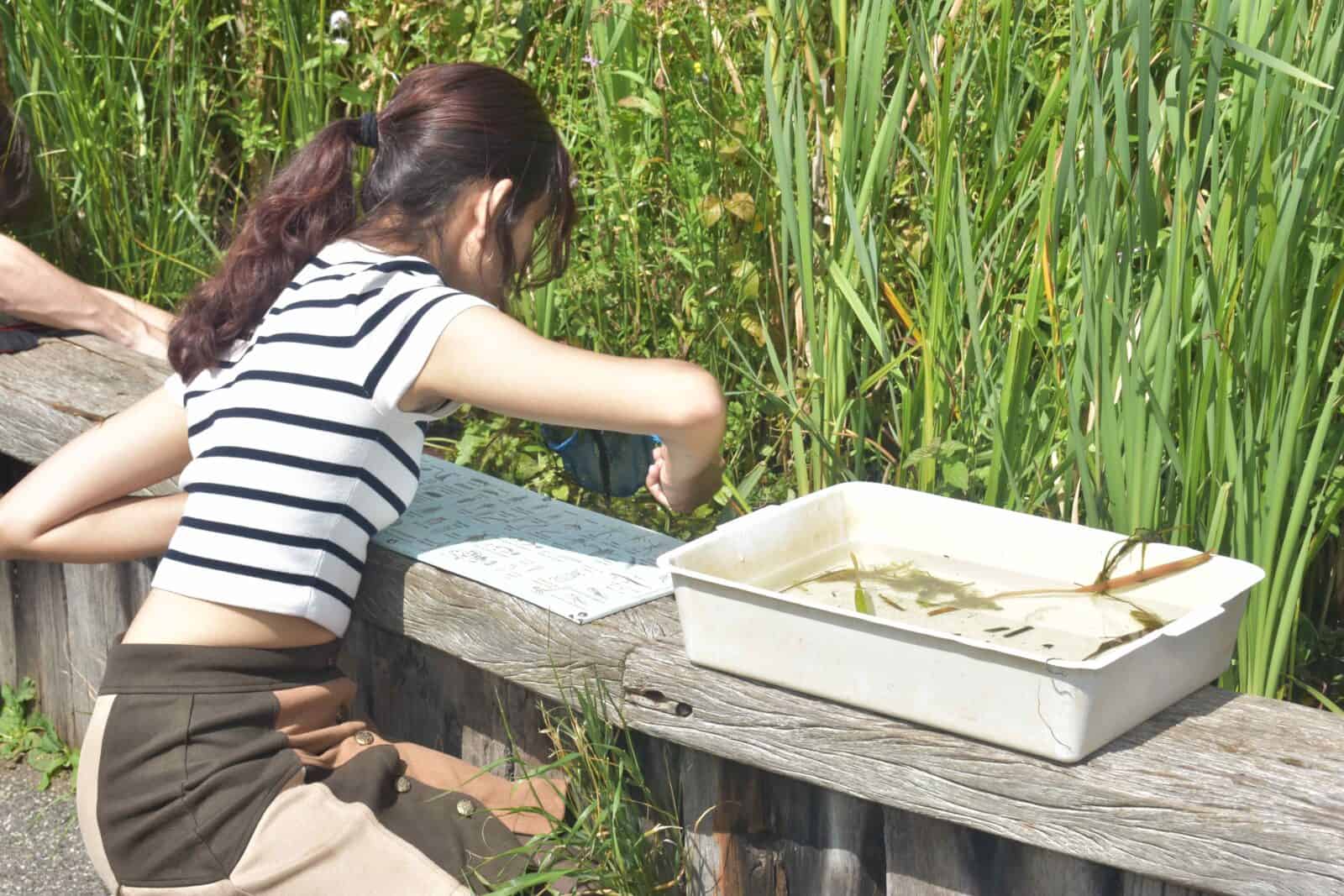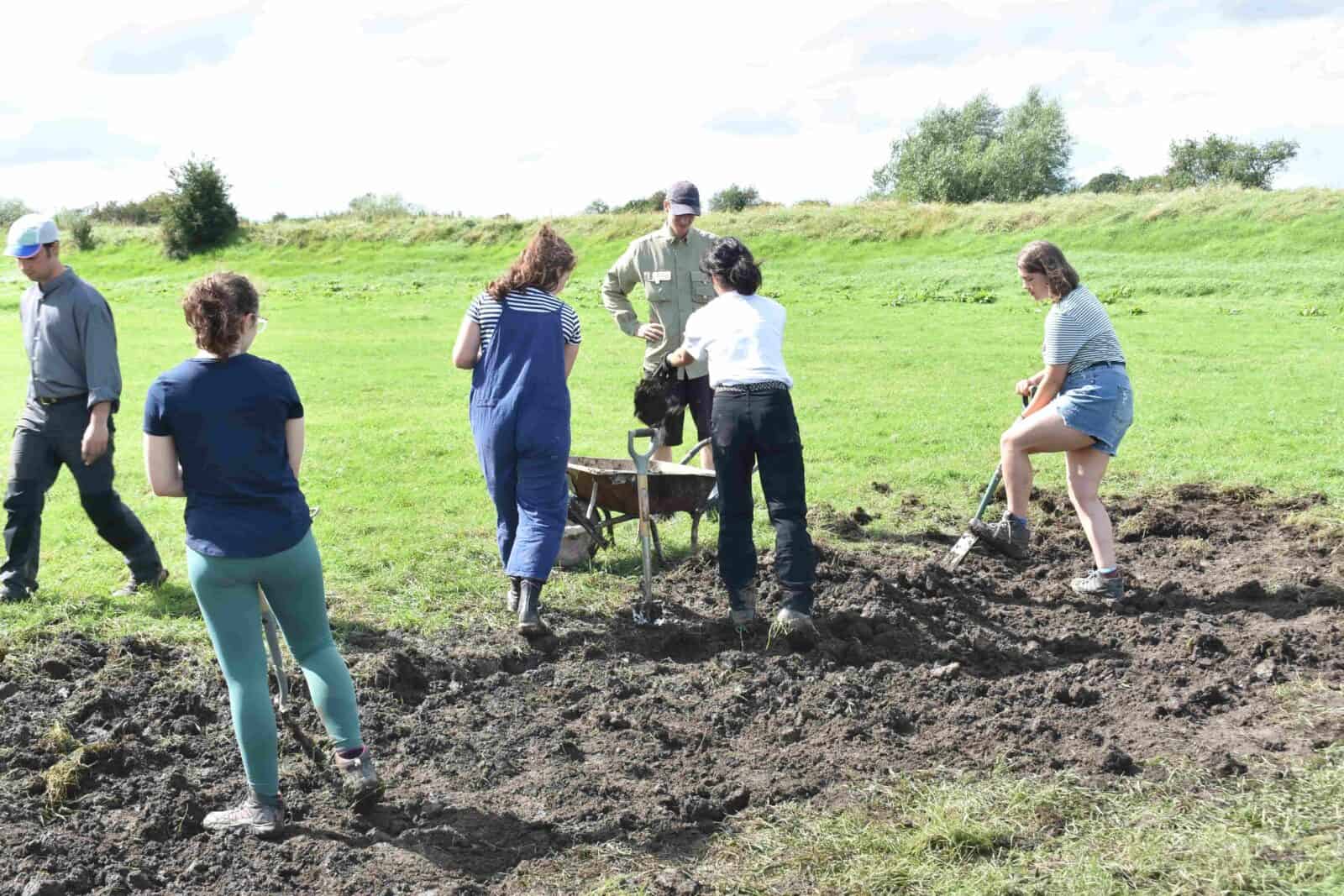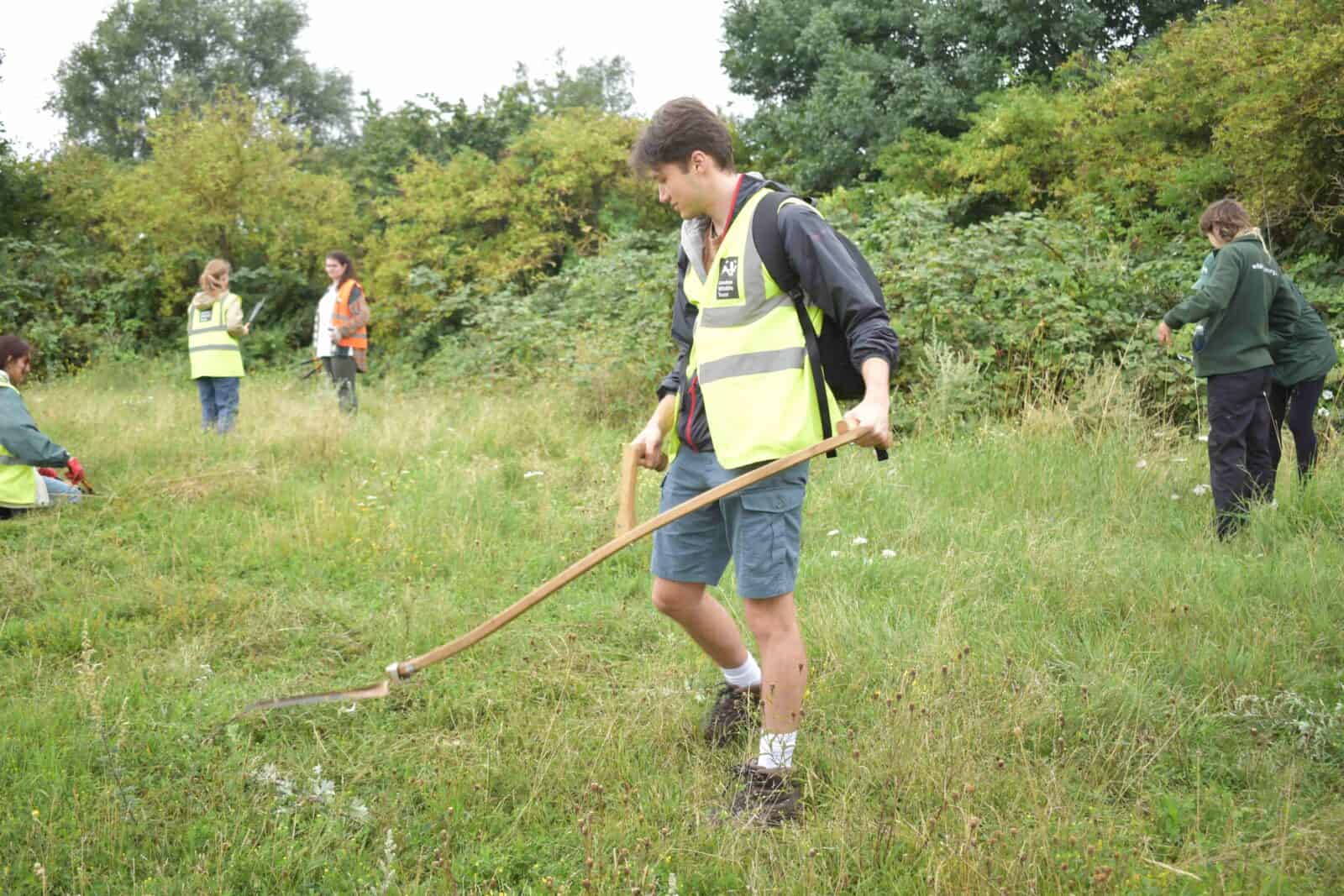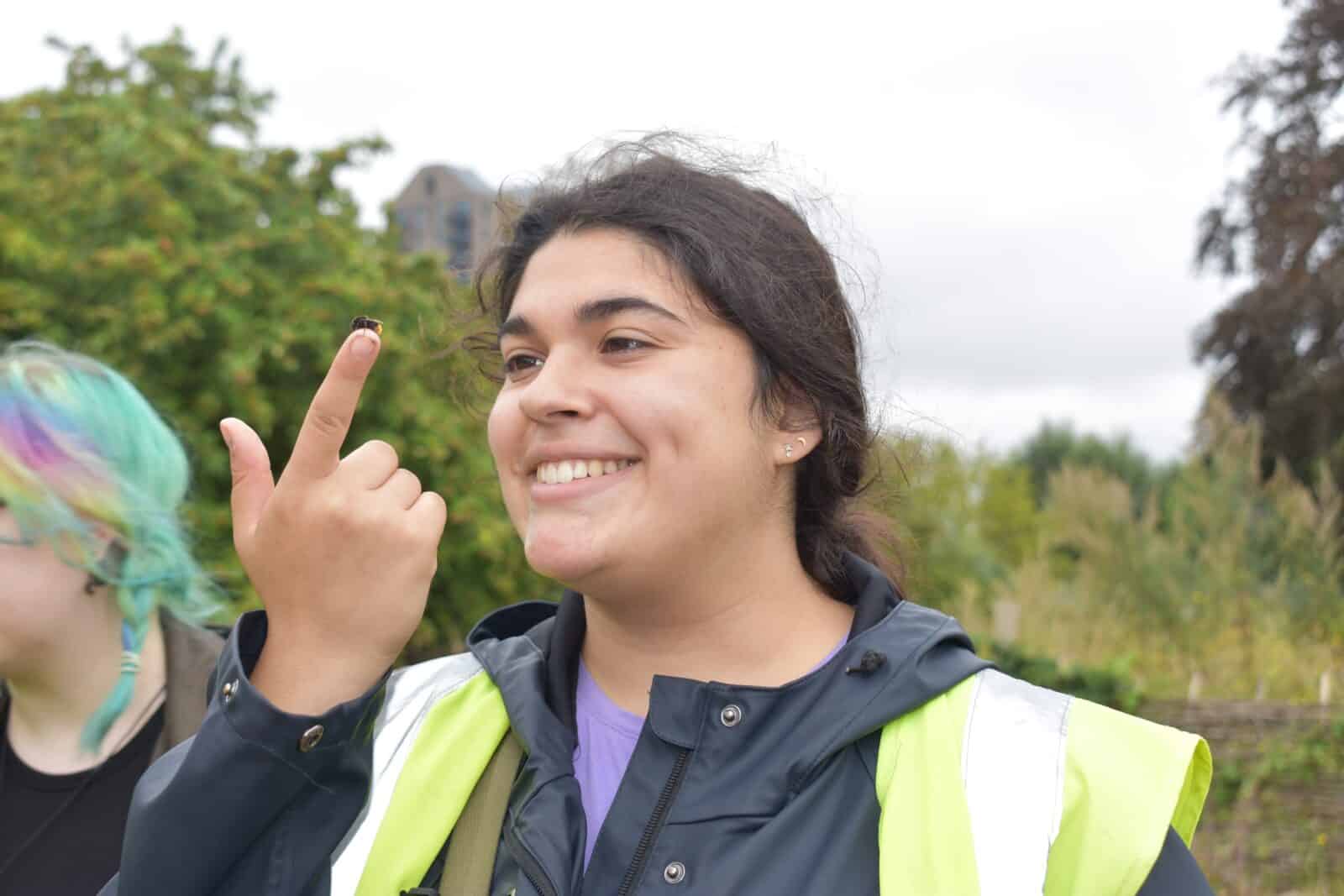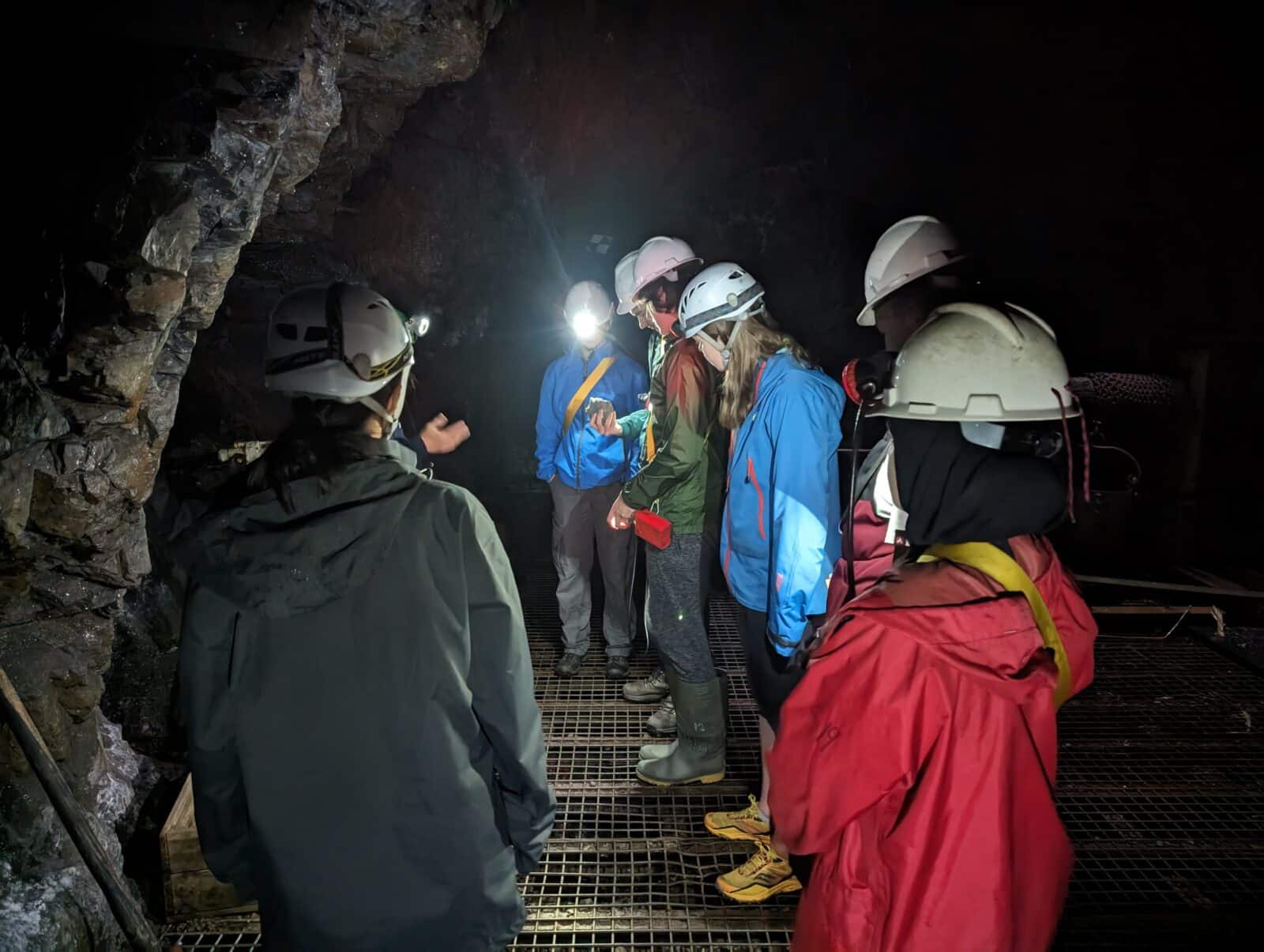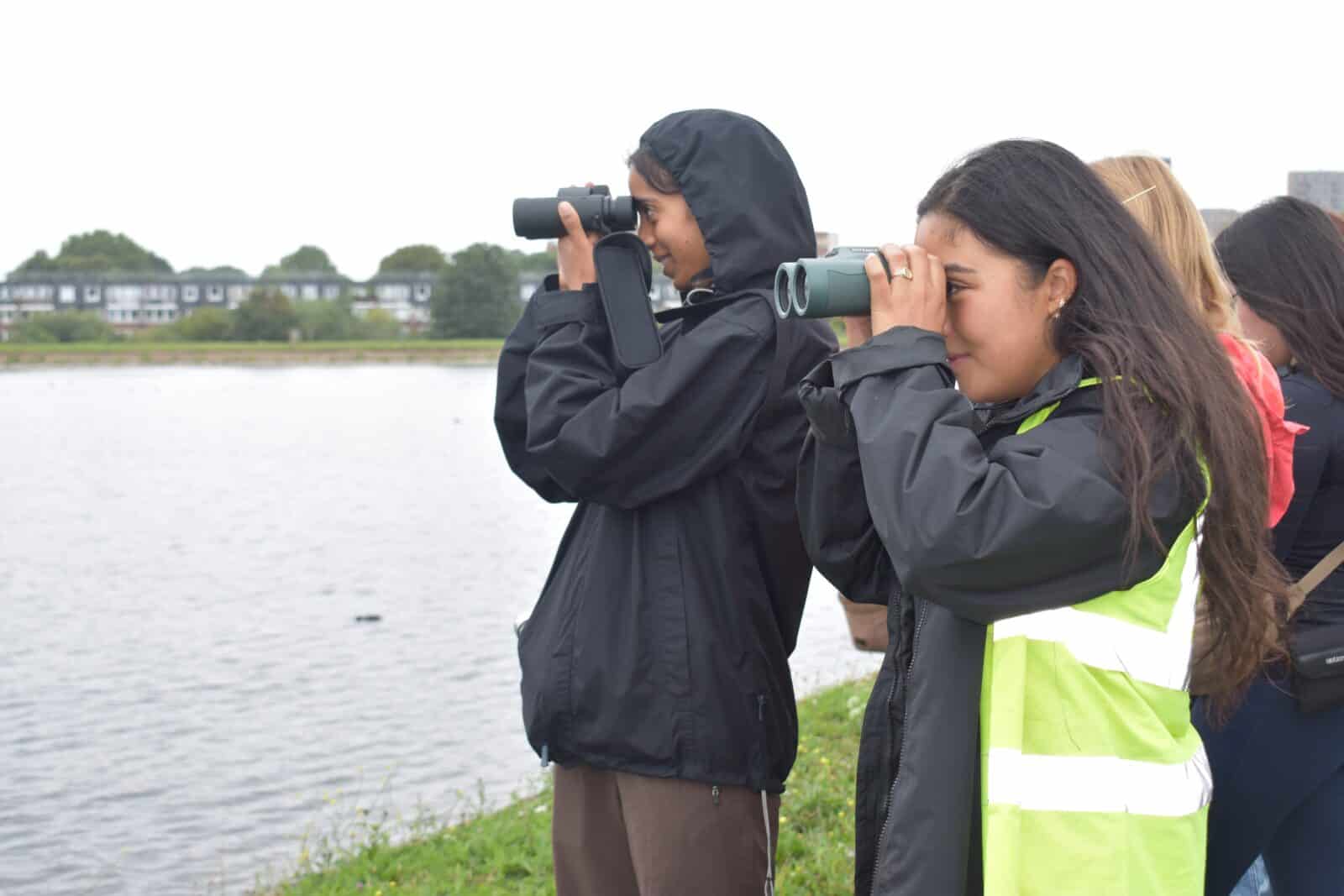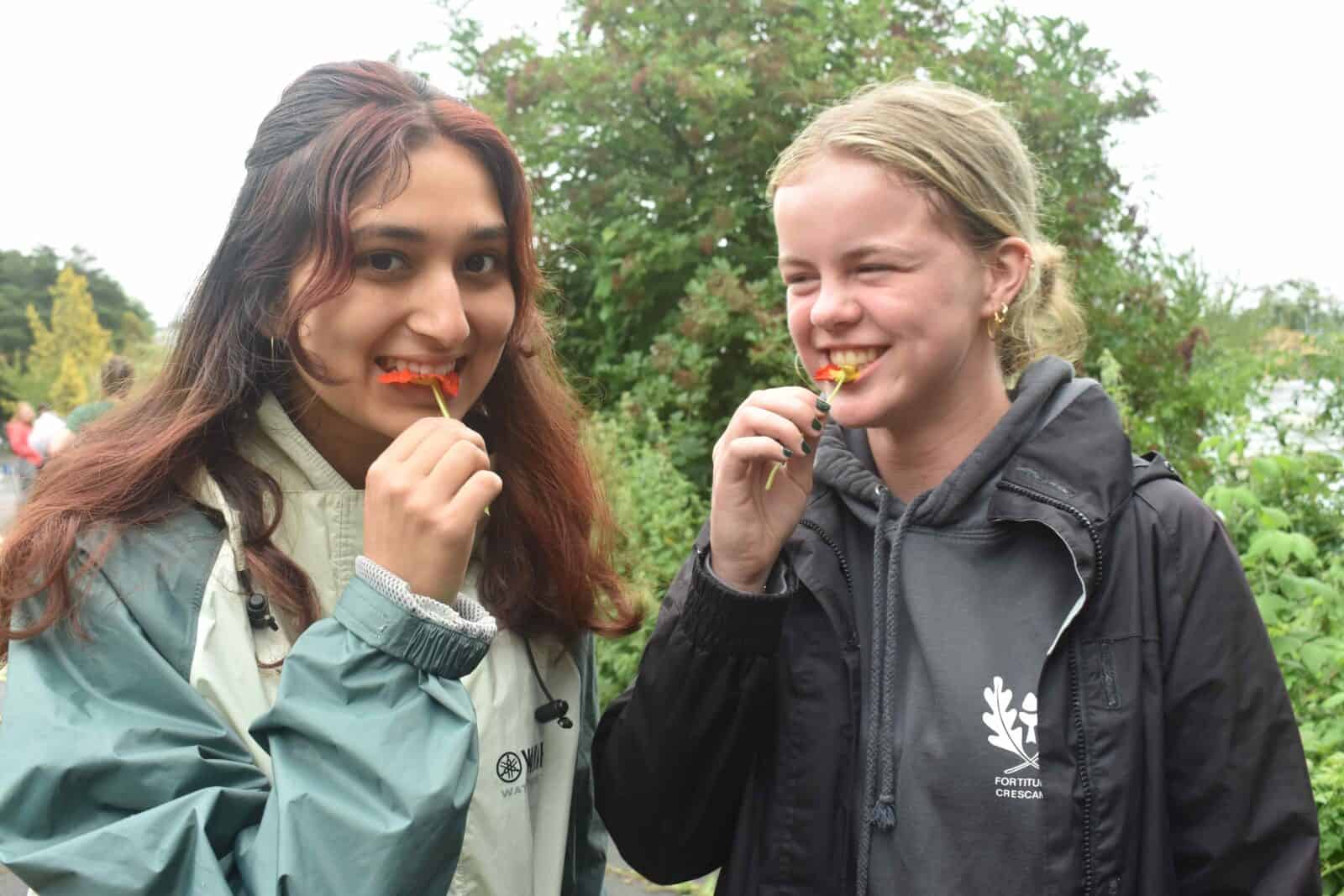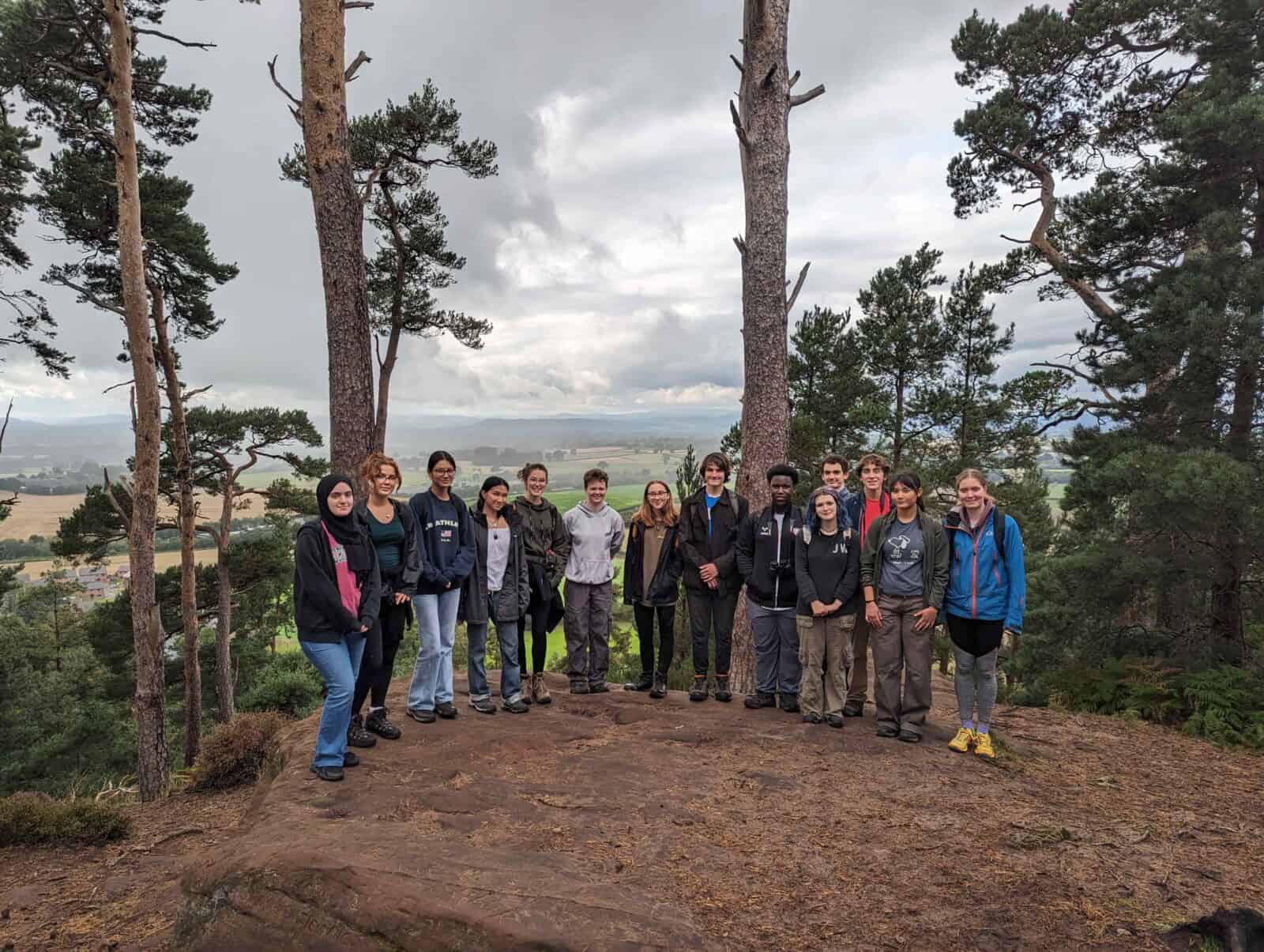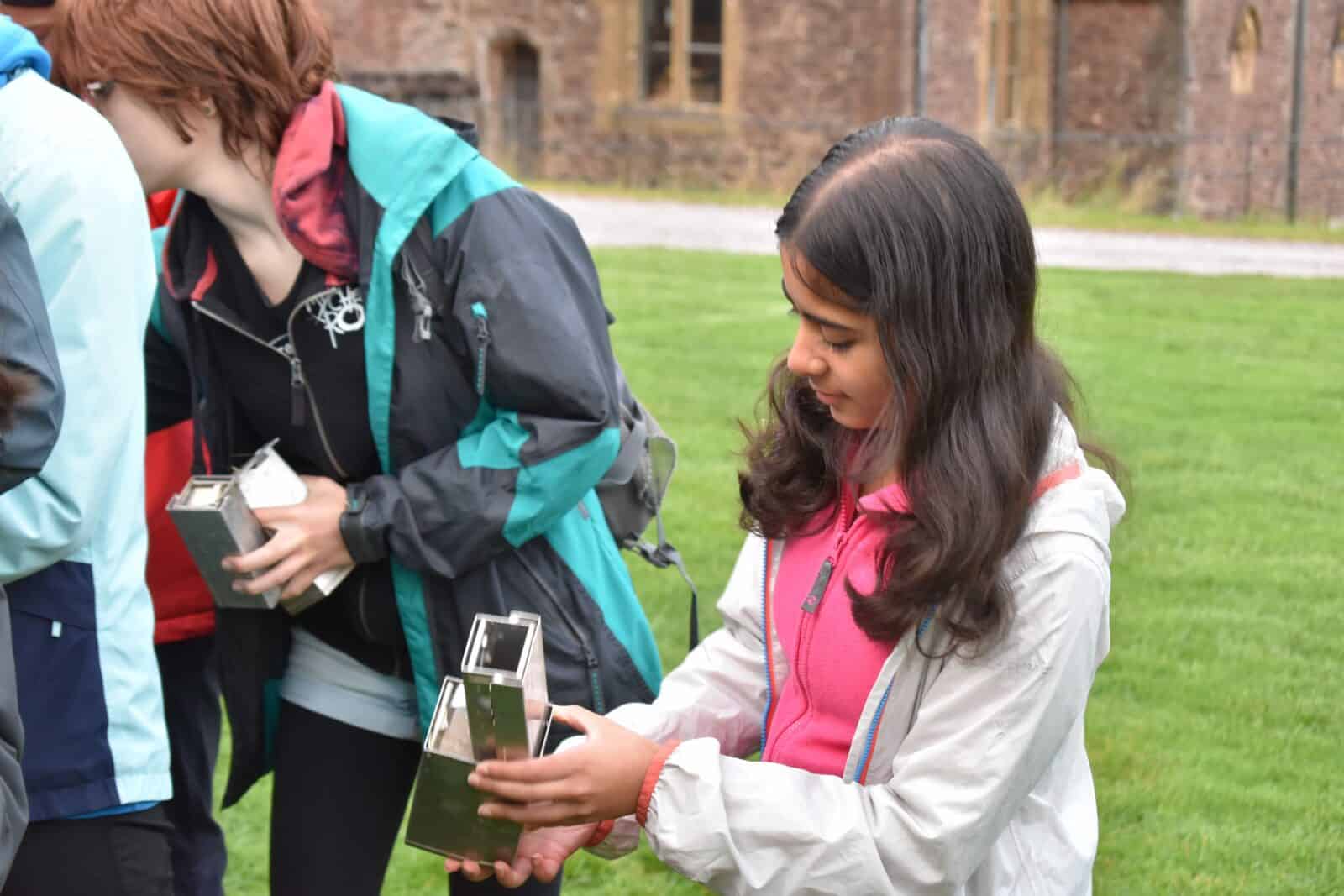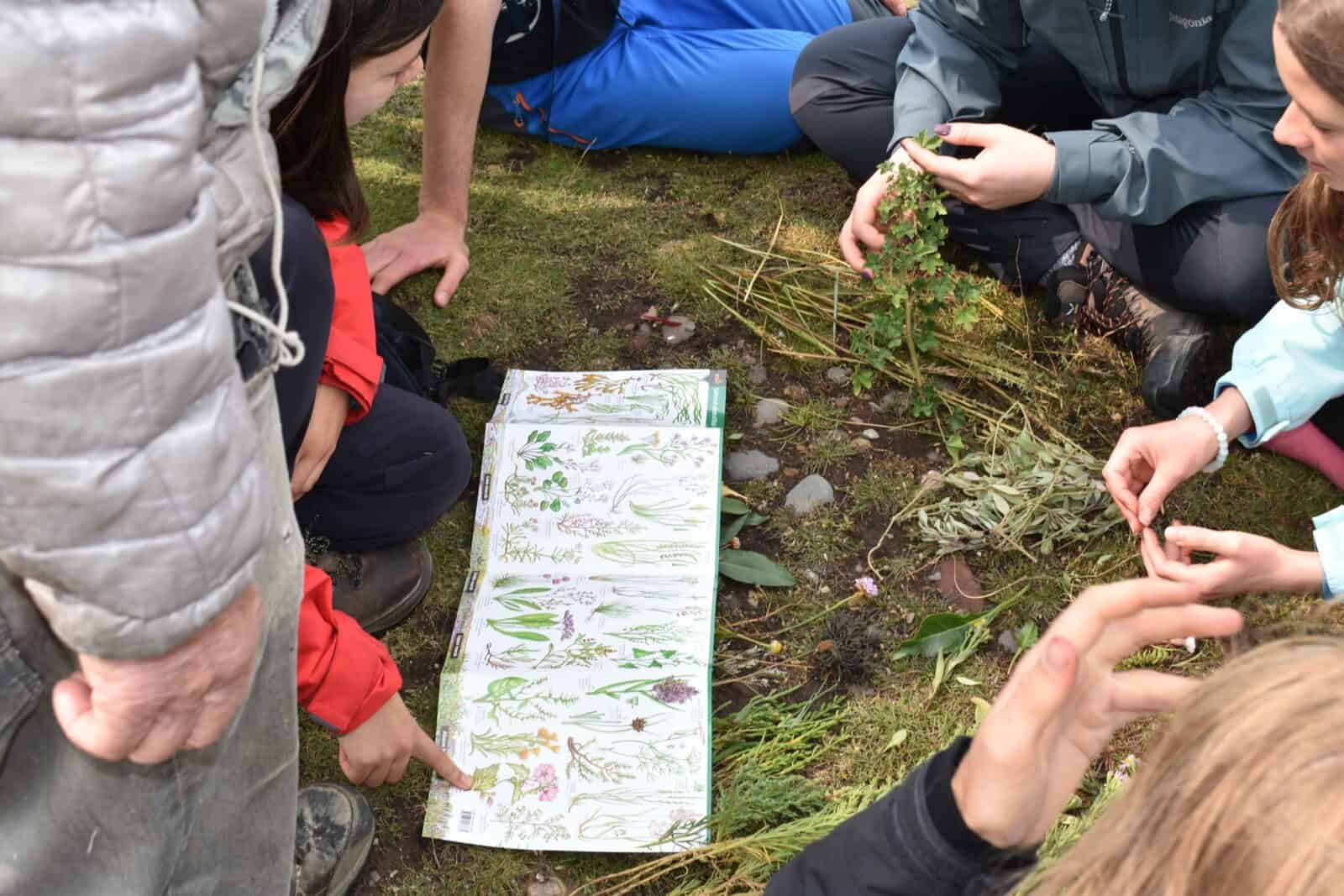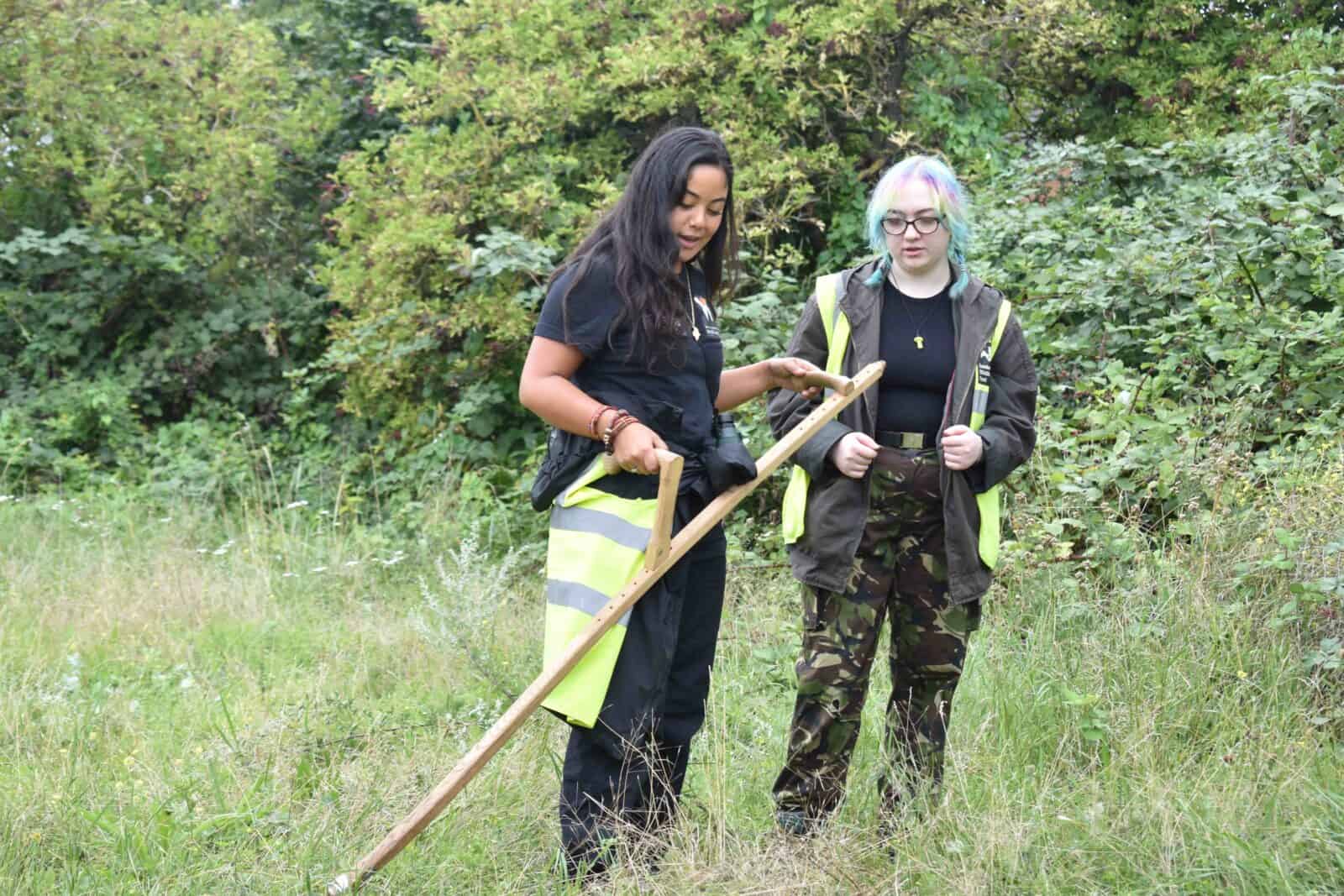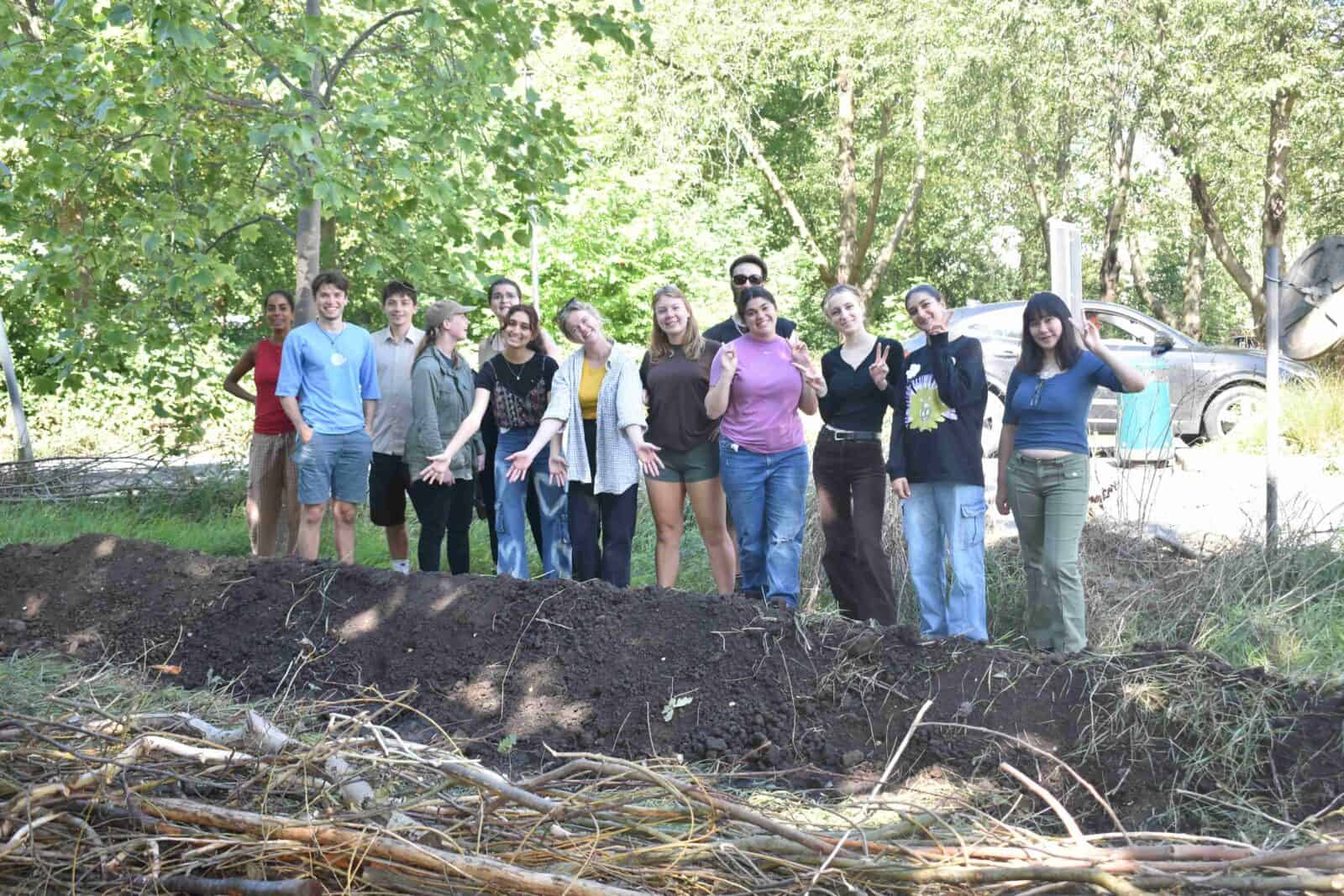Blog by Mollie Clay, Biodiversity Learning Development Officer
What is the Young Darwin Scholarship?
The Young Darwin Scholarship is a Field Studies Council initiative supporting young people with a real interest in the natural world and inspiring the next generation of ‘Darwins’.
The scholarship includes a heavily subsidised 5-day residential trip, or series of days, at locations across the UK, with each experience centring around time outdoors in environmentally engaging spaces. Scholars continue to receive support for three years following their experience through a range of exclusive webinars and events, subsidised places on our natural history courses and environmental activities.
Past scholars have continued to study natural history through university degrees and PhDs. They have secured green careers in ecology and conservation, and many are volunteering with various environmental organisations.
The scholarship began at our headquarters in Shrewsbury, the birthplace of Charles Darwin, and has run since 2012. Field Studies Council has supported over 350 Young Darwin scholars across more than a decade.
In 2023, we hosted our largest cohort of young people ever at 5 immersive and engaging scholarships across the UK. The scholars enhanced their environmental knowledge and understanding of species and habitats, supporting them in their ambitions to work in the natural history sector.
383 young people applied this year, for 80 available scholarships. This mirrors the trend from previous years of the programme being substantially oversubscribed, highlighting that it is in demand and that young people are increasingly interested in these types of opportunities.
Thanks to generous donations and grants, we were able to offer 21% of applicants a scholarship. We hope to increase the number of scholarships awarded in future years by securing further funding and donations.
What did the scholars of 2023 have to say?
Instead of us describing what the scholarship is like, we have some fantastic feedback from some of this year’s participants, and we have also included lots of our photos so you can see what the scholars got up to.
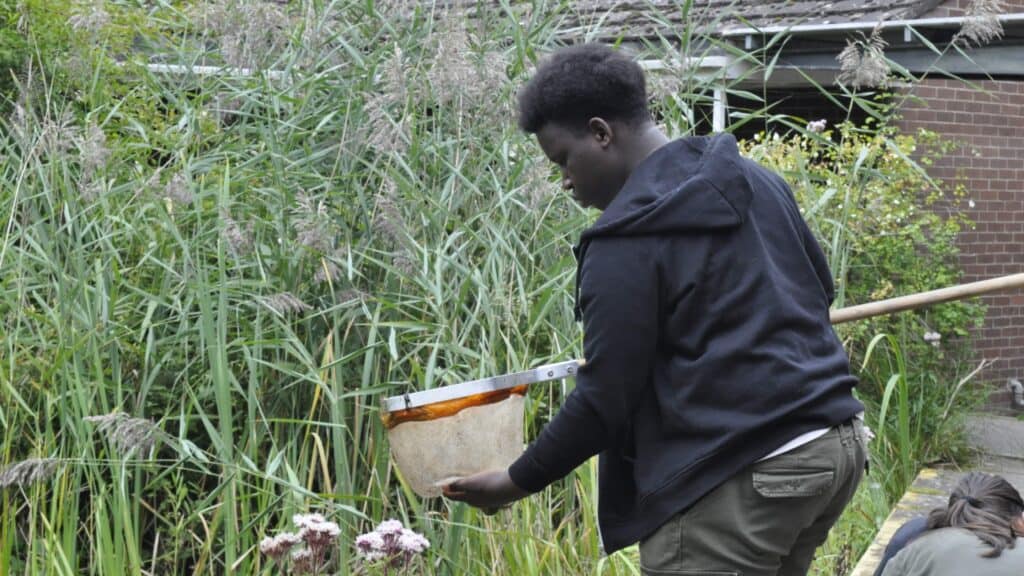
Jose-Maria Kimburi
“I applied for this scholarship because it would be beneficial for me and my future; it would be a good way to meet like-minded people the same age as me with similar interests and to apply my skills around the young people with experts there to guide me in the right direction. I also applied because it seemed like a lot of fun as well as learning different things on the course. At the end of the week, I REALLY and thoroughly loved the scholarship as it was an eye-opening opportunity which introduced a broad number of skills and application techniques which I found great. I was very sad to leave at the end, but I left there knowing I had learnt a lot and I had made a lot of new friends and contacts.”
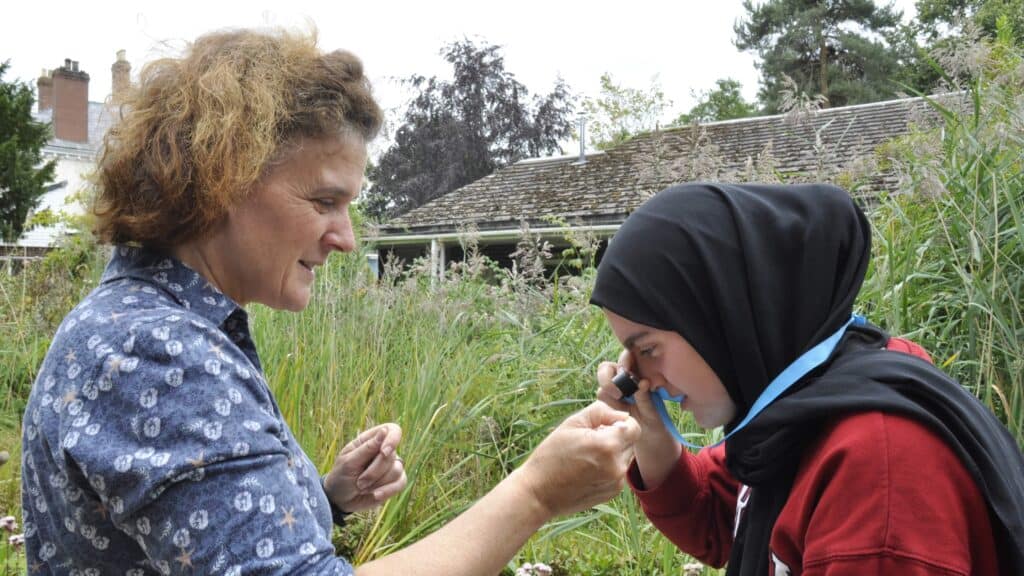
Moona Kurdi
“The staff were extremely engaging and supportive and were dedicated to providing an inclusive experience which combined practical, hands-on expertise with an informative learning environment. My favourite activity would have to be the identifying damselflies and dragonflies session with Sue Rees Evans. She perfectly encapsulated all there was to know about these creatures, and was a joy to listen to and be involved with.”
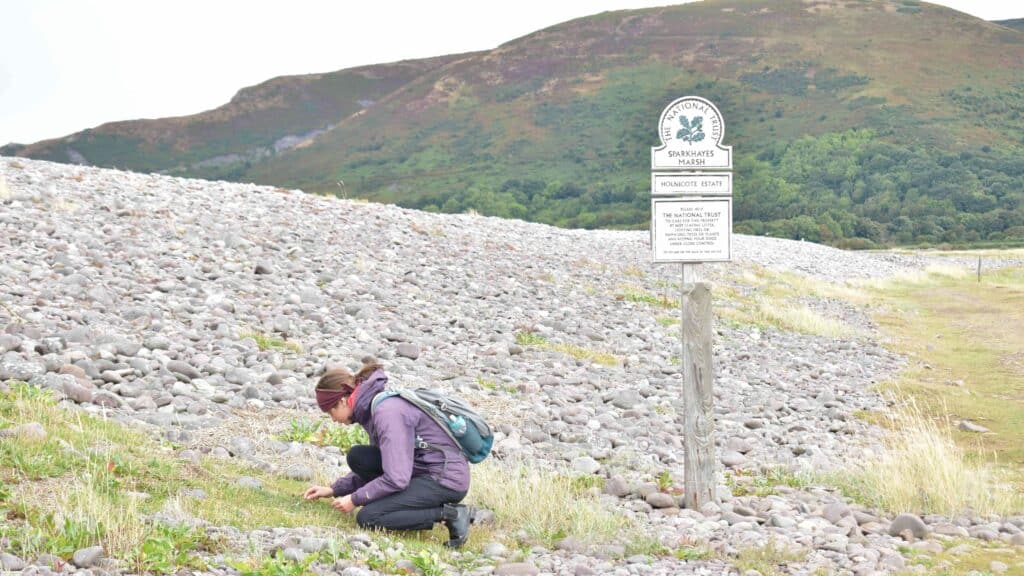
Myfanwy Meeran
“I first visited a Field Studies Council centre with my A-level biology field trip, where a member of staff recommended the Young Darwin Scholarship to me when I mentioned I was interested in re-wilding and wanted to study biology. I applied because it seemed like valuable experience for the career in ecology and conservation I was interested in, but more importantly, a week outside just enjoying the natural world with people my age was my ideal holiday. I was expecting the course to be similar to my field trip, but what made the difference was the level of engagement and enthusiasm from all the scholars that meant I didn’t feel weird about being excited by a spider. We also explored everything in so much more depth with academics and experts in their fields coming to work with us – it felt like our learning was being taken seriously as young professionals whilst we were still cared for as young people.”
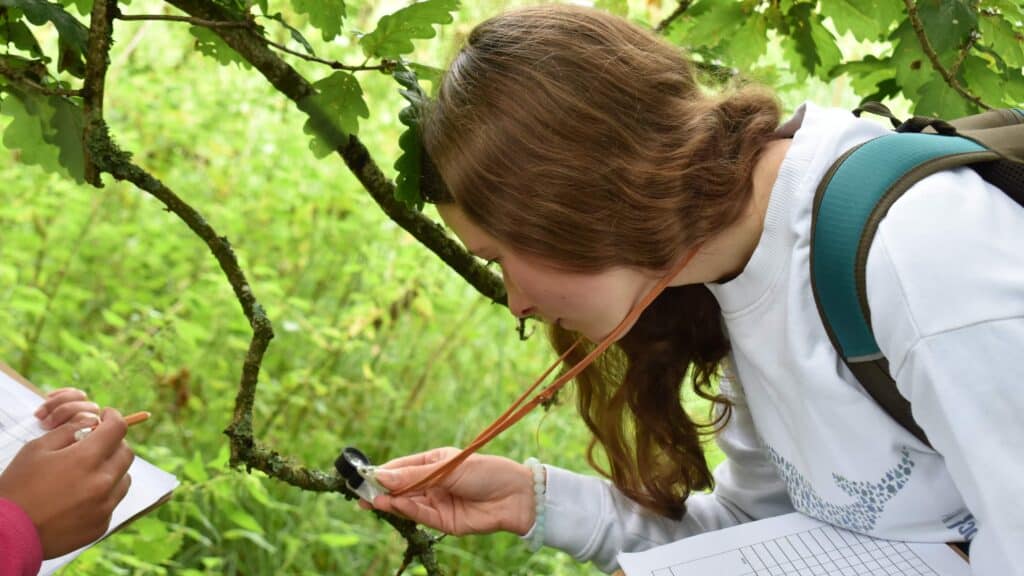
Olivia Bird
“Overall, I would describe my scholarship as a fantastic experience. I spent a week at the Nettlecombe Court Field Studies Centre in Somerset, taking part in a range of fascinating and varied activities linked to local ecosystems. Some of the highlights included learning about salt marsh ecology, small mammal trapping, bat detecting, and lichen identification. These activities were led by experts in each area, all of whom were enthusiastic and willing to answer any questions we had about their own experiences, and the work that they carried out. I particularly enjoyed learning about freshwater invertebrates, and being given the opportunity to carry out an investigation using scientific equipment.”
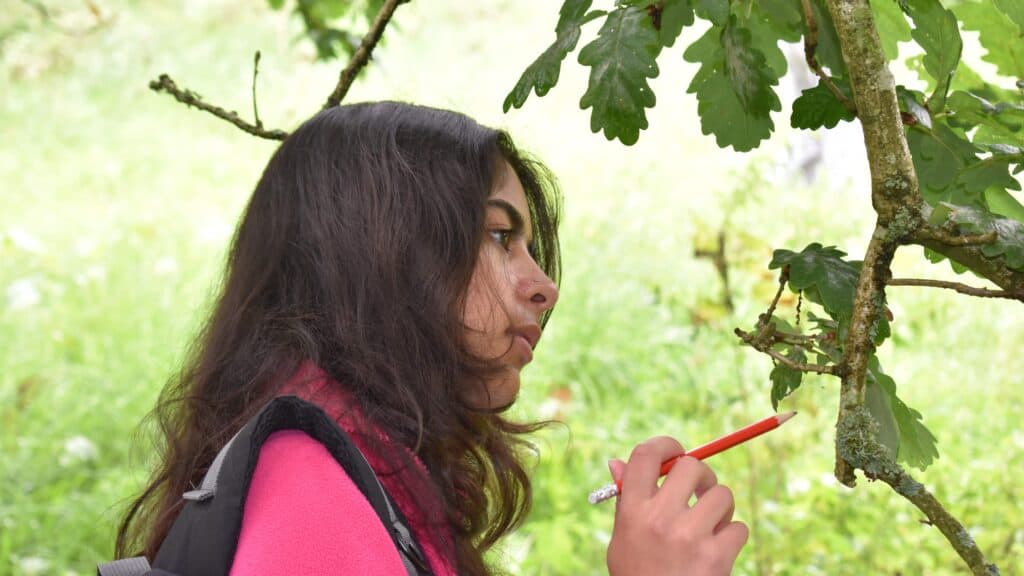
Sanchi Pathak
“Even after the residential, the support from the Field Studies Council has been immensely useful, with regular updates on opportunities and events. Access to resources, such as a BSBI membership and complimentary identification guides, have supported our learning. Connecting young people to nature and each other is crucial considering the climate crisis we face, and the Young Darwin Scholarship is an amazing way to encourage passion for nature and community action.”
It is clear that what scholars find the most beneficial from the immersive weeks is being with like-minded people who share their own passions. Scholars can explore and share their interests with others in engaging environments, and they feel safe in these environments and can openly discuss their interests with no judgment.
A huge thanks to everyone who makes the programme possible, and we hope we can continue to offer this opportunity to even more young people in the future.
Sign up for our Youth Newsletter for notifications about future Young Darwin Scholarships. 2024 applications are not currently open.

